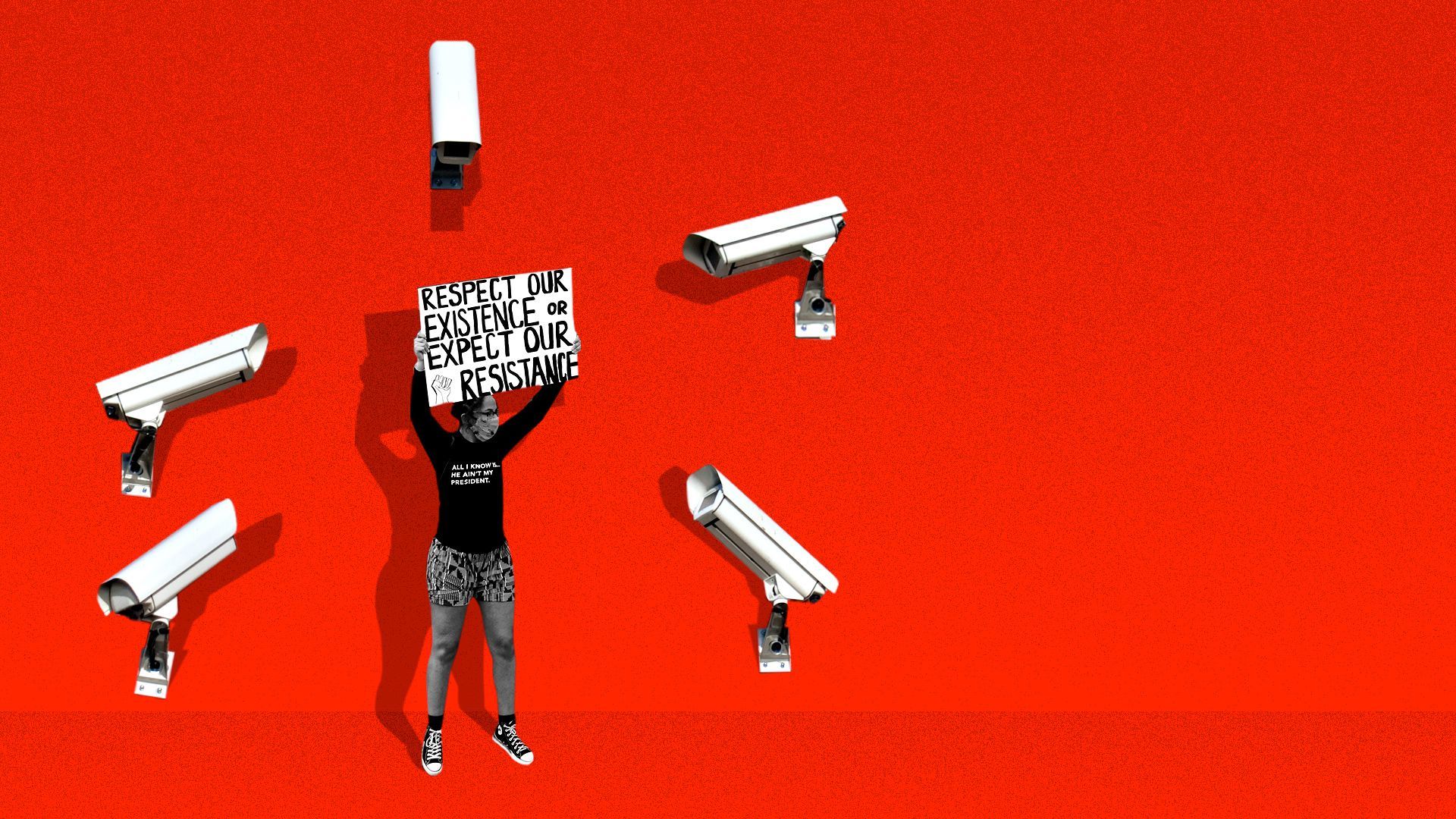Protest responses raise domestic surveillance concerns
Add Axios as your preferred source to
see more of our stories on Google.

Illustration: Aïda Amer/Axios
The sometimes militarized government response to nationwide protests following the killing of George Floyd has shone a light on the scope of the surveillance and enforcement apparatus that can be mobilized quickly against U.S. civilians.
The state of play: Since the protests began, extraordinary emergency authorities have been granted to the Drug Enforcement Agency to police demonstrators, including through “covert surveillance,” according to a DEA memo leaked to BuzzFeed.
- It is not clear what this entails, but the DEA has planes outfitted with “stingray” devices that can suck up phone data in bulk.
Other agencies: Attorney General Bill Barr has mobilized a dizzying array of federal law enforcement agencies to police demonstrations in Washington and elsewhere.
- This includes representatives of the “Secret Service, National Guard, Customs and Border Protection and U.S. Park Police ... Border Patrol, U.S. Immigration and Customs Enforcement, Transportation Security Administration, National Guard, Coast Guard, Federal Protective Service,” according to a Department of Homeland Security memo leaked to Yahoo News.
- The New York City Police Department has even requested drones from the Coast Guard.
Even U.S. foreign intelligence agencies could be roped into the domestic turmoil.
- As Jenna McLaughlin, Sean Naylor and I reported at Yahoo News, at a recent “virtual town hall,” employees of the Defense Intelligence Agency, which is primarily focused on military intelligence, raised concerns over word that a Defense Intelligence Agency task force was created to focus on the unrest.
- According to sources, the DIA director denied any specific domestically focused task force but acknowledged that the agency was looking at any “foreign nexus” to the protests.
- A DIA spokesperson told Yahoo News that the agency had created “an internal coordination group to respond to increased and appropriate Department requests for information” regarding the unrest.
The bottom line: Revelations of illegal surveillance of protesters and activists during the Vietnam War era created great scandal and upheaval and catalyzed many of today’s most important laws and prohibitions governing domestic intelligence-gathering. Now the test is whether the U.S. government unlearned that lesson in the decades since.
- What to watch: On Tuesday, 35 House Democrats sent law enforcement agencies a letter demanding an end to protest surveillance.
